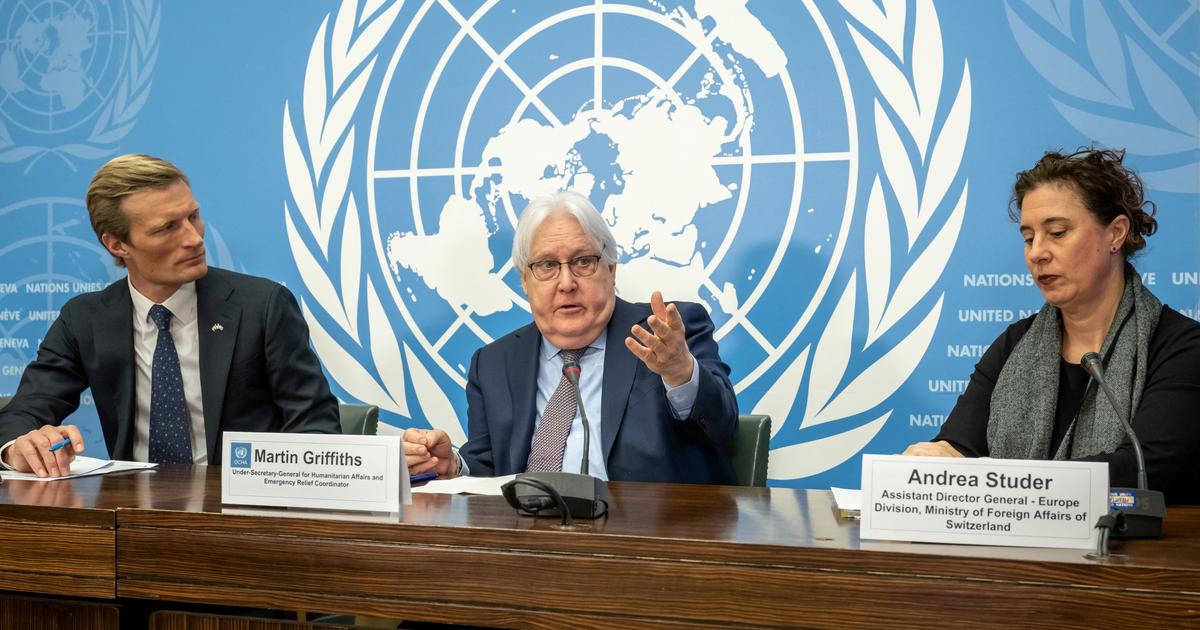The UN expressed alarm on Tuesday of an
“almost inevitable widespread famine”
in the Gaza Strip, particularly in the north of the Palestinian territory besieged by Israel and where, without humanitarian access and with a devastated agricultural system, it is
“imminent »
.
“If nothing changes, a famine is imminent in northern Gaza
,” Carl Skau, deputy executive director of the World Food Program (WFP), told the UN Security Council.
No convoy has been able to reach northern Gaza since January 23, according to the UN, which denounces the obstructions of the Israeli authorities.
And the north of the Palestinian territory is not the only area at risk after almost five months of war between Israel and Hamas, a war triggered by the unprecedented attack by the Palestinian Islamist movement on October 7 which resulted in the death of at least at least 1,160 people, the majority civilians, according to an AFP count based on official Israeli data.
“Ensure respect for humanitarian law”
“If nothing is done, we fear that widespread famine in Gaza is almost inevitable
,” added Ramesh Rajasingham, on behalf of the head of the UN humanitarian office (OCHA) Martin Griffiths.
"We are at the end of February, with at least 576,000 people in Gaza - a quarter of the population - one step away from famine"
, and virtually all of the 2.2 million inhabitants
"dependent on woefully inadequate humanitarian aid to survive,”
he added.
“As grim as the picture is today, it can still deteriorate
. ”
This meeting followed a note sent on February 22 to the Security Council by Martin Griffiths, detailing the impacts on food security of the Israeli offensive which left nearly 30,000 dead in Gaza, the vast majority civilians, according to the ministry. of Hamas Health.
In this text, seen by AFP on Tuesday, he calls on the Council to act to
“ensure respect for humanitarian law, including the prohibition of using starvation of the civilian population as a method of war
,” insists. he.
“According to the most likely scenario, agricultural production will have collapsed in the north by May
,” Maurizio Martina, deputy director general of the Food and Agriculture Organization of the United Nations, told the Council on Tuesday. (FAO).
15,000 tons of food blocked in Egypt
As of February 15, 46.2% of agricultural land had been damaged in the Gaza Strip, agricultural buildings
"devastated"
, more than a quarter of wells destroyed, some 70% of cows and 50% of small ruminants killed, a he noted.
And 97% of groundwater is no longer usable for human consumption.
Humanitarian aid continues to enter the Palestinian territory but only slowly.
On Monday, the head of the UN agency for Palestinian refugees (UNRWA) Philippe Lazzarini noted on X that February had seen a 50% drop in aid entering Gaza compared to January.
However,
“nearly 1,000 trucks loaded with 15,000 tons of food are in Egypt, ready to move
,” noted UN spokesperson Stéphane Dujarric on Tuesday.
“It is not Israel that is blocking these trucks
,” Deputy Israeli Ambassador Jonathan Miller responded to the Security Council, placing the
“blame”
on the UN and its inability to organize this aid
“effectively”
.
“There is absolutely no limit (...) to the volume of humanitarian aid that can be provided to the civilian population of Gaza
,” he assured, indicating that Israel had since the beginning of 2024 refused 16% requests for aid delivery due to
“risks”
that certain goods
“end up in the hands”
of Hamas.
The Secretary General and UN humanitarian agencies have been calling for an immediate ceasefire since the start of the war, in particular to allow the adequate delivery of humanitarian aid.

